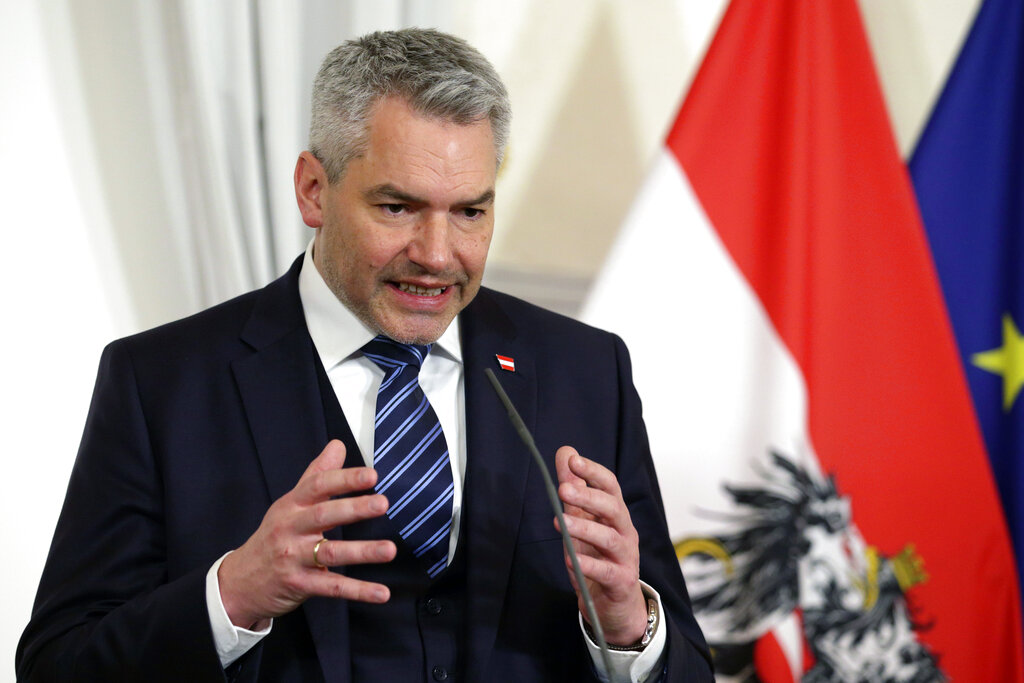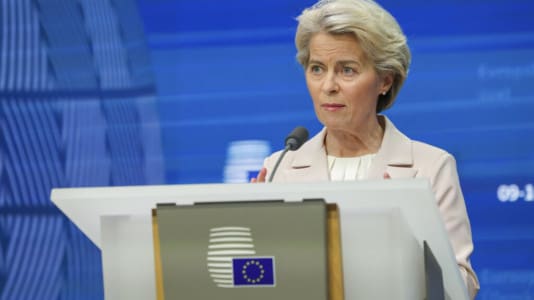Austrian Chancellor Karl Nehammer has threatened to block the joint final asylum declaration of the heads of government at this week’s EU summit over what he says is the bloc’s inability to protect Europe’s external borders.
Nehammer told German newspaper Die Welt that if a “clear and unequivocal commitment to strengthen external border protection and to deploy corresponding financial resources from the EU budget” is not achieved, Austria will not be able to support the final declaration of the European Council.
According to the Austrian chancellor, his country has support from other European countries over the issue of border security. Denmark, Latvia, Estonia, Lithuania, Slovakia, Malta, and Greece have signed a joint declaration with him calling for more concrete and well-defined support from the European Commission, as well as funds and more involvement from Europe’s border protection force, Frontex.
“Many other EU member states share our view that the asylum system is broken. That’s why we addressed this in a joint letter to Council President Charles Michel and EU Commission President Ursula von der Leyen in the run-up to the special summit,” said Nehammer.
“In our view, the current asylum system is broken and it is mainly the cynical people smugglers who take advantage of the misfortune of women, men, and children who benefit from it,” the letter to EU leaders reads. The eight nations demand “the fastest possible progress on the entire EU migration and asylum pact, a revision of the Schengen border code, and an agreement on legislative projects that address the migration situation.”
The countries are also demanding increased cooperation regarding deportation proceedings between Europe and migrants’ countries of origin. Currently, very few rejected asylum seekers are deported back to their countries, partly because these countries refuse to accept them. The seven countries plus Austria argue that visa policies should be leveraged to force these countries to accept migrants. However, the EU has also been reluctant to make any such move.
Pro-migration national governments have also refused to take action with visas. After 13-year-old Parisian schoolgirl Lola was murdered by an Algerian migrant last year, the media revealed that only 0.2 percent of Algerians marked for deportation were ever actually deported. French President Emmanuel Macron, reacting to tremendous pressure from the public to take action, said he would restrict visas to Algerians until the Algerian government began accepting rejected asylum seekers, only to back down and withdraw his threat just weeks later.
Austria’s chancellor is under tremendous pressure due to a record number of asylum seekers coming to his country last year. This has helped fuel the rise of the rival Freedom Party of Austria (FPÖ), which is now number one in the polls and a direct threat to Nehammer’s conservative Christian party, which has failed to stem the flow of immigrants.
Nehammer highlighted that of the 100,000 migrants who arrived in his country last year, three-quarters of them were never registered in the EU or another Schengen country before arriving. He said this was a “massive security problem for the entire European Union.” If tens of thousands could cross Schengen countries without even being checked and registered, then “Schengen does not work, but also the EU asylum system has failed,” he added.
The facts are often “negated and glossed over,” Nehammer said. “We have to put an end to that. Let’s be honest and put the facts on the table, then we will also come to solutions.”





